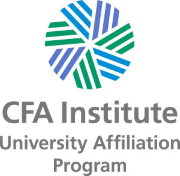Banking
Course Name: Banking
Teachers: Angelos Antzoulatos
School: Finance and Statistics
Department: Banking and Financial Management
Level: Undergraduate
Course ID: — Semester: 6th
Course Type: Core Course
Prerequisites: –
Teaching and Exams Language: Greek
Course Availability to Erasmus Students: No
Course webpage: –
Specific Teaching Activities |
Weekly Teaching Hours |
Credit Units |
Lectures |
4 |
6 |
Course Content
- The financial system
- Structure
- Main products
- Finance and development
- Introduction to banking
- Main financial statements
- Loan-loss provisions
- Competition
- Shadow banking system
- Bank capital
- Bank risks
- The role of information
- Asymmetric information
- Asymmetric information and financial products
- Market responses
- Banks and the economy
- Economy, economic policy, markets and bank risks
- Procyclicality and the dynamics of banking crises
- Financial contagion
- Banks and authorities
- Banks’ safety net
- Bail in and bail outs
- Capturing economic policy
- Regulation
- Economic analysis
- Basel I, II & III
- Supervision
- Micro-prudential
- Macro-prudential
Teaching Results
This course
- describes the main products and functions of banks, as well as the risks they undertake in order to contribute to social welfare, using as vehicle their main financial statements,
- explores bank risk management, including the risks from asymmetric information,
- explores the multi-faceted interactions between banks, the financial system, governments, central banks and the economy,
- analyses the private incentives of all players, from bank employees all the way to the top management of the supervisory authorities,
- stresses the role of information technology and of other forces of change,
- describes the dynamics of banking crises,
- highlights the logical underpinnings of the complex institutional framework that governs the operation of banks,
- uses current economic and financial developments, both domestic and international, to tie the course to the real world.
After completing this course, students are expected to
- analyse critically banks’ financial statements,
- understand bank risks and functions,
- understand the role and dilemmas of the institutional framework,
- assess the likely impact of changes in the institutional framework and in the economy on bank strategies,
- combine banking logic with macroeconomics for complete financial analyses.
Skills
- Retrieve, analyse and synthesize data – economic and financial
- Decision-making
- Independent work
- Work in an international environment
Teaching and Learning Methods - Evaluation
Lecture: Ιn Class
Use of Information and Communication Technologies: Use of PowerPoint
Teaching Analysis:
Activity |
Semester Workload |
Lectures |
52 |
Study |
98 |
Total |
150 |
Student Evaluation:
Written exam: 100%
- Typically, the students are asked to analyse current developments and dilemmas pertaining to bank strategies and regulation/supervision.
- Occasionally, they are asked to comment on an recent article from the financial press.
Bonus 10% based on class participation.
Recommended Bibliography
– Recommended Bibliography: Instructor notes and policy aricles for the ECB, the Fed, the BIS.
– Related scientific journals:




